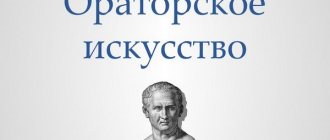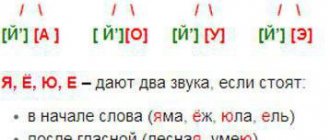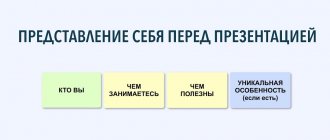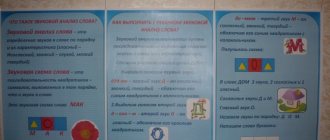Despite all his evil genius, Hitler’s oratorical talent is obvious: not only the masses who were far from politics and history, but also people well educated in these areas, succumbed to his influence. This can be explained by the Fuhrer’s ability to capture the type of thinking of his listeners: Hitler’s speech was always tailored to their perceptions and ideas. Analysts identify several features inherent in the politician’s speeches, which were decisive in his ability to capture the attention of the audience.
Directing Nazi rallies
Up to half a million participants and spectators gathered at the NSDAP (National Socialist Workers' Party of Germany) congresses in Nuremberg.
(08/26/2009) In this historical case, the situation was completely different. There was a strong imbalance of power here, since Hitler was much more active than representatives of other parties. In addition, the parliamentary path to power was only a tactical move for the National Socialists, since an attempt to come to power by revolutionary means (“Beer Hall Putsch”) ended in imprisonment for Hitler in 1923. Considering this fact, the results of our study are indeed somewhat unexpected.
— Is it possible to say that earlier researchers attached greater importance to Hitler’s public speeches?
— There are not many empirical studies on this topic. There is a widespread opinion among historians that National Socialist propaganda played a certain role in strengthening the position of the NSDAP. At first glance, one can find signs indicating the effectiveness of Hitler's election campaigns and rhetoric. There are many accounts of eyewitnesses who personally listened to Hitler's speeches and were captivated and convinced by these speeches. On the other hand, the strengthening of the position of the NSDAP occurred at a time when Hitler was most active as a speaker. The NSDAP largely stagnated—both in terms of its electoral performance and in an organizational sense—while Hitler was imprisoned in 1923–1924 and while the Weimar Republic had laws prohibiting Hitler from speaking in public. Actually, the very fact that the authorities imposed this ban indicates that they believed that Hitler was a very strong and therefore dangerous speaker.
— The data you presented refutes this point of view. But what then helped Hitler’s party come to power?
— We have not considered this issue. In our research, we focused on studying the effect of the NSDAP election campaigns, in particular, Hitler's speeches. But there are many studies about the reasons for the collapse of the Weimar Republic. The factors that are named in these studies: the economic crisis, insufficient support for democracies from the elites and the masses, weak institutions of power... All these are very obvious factors.
— In your research, you looked at the period before the Nazis came to power. How did Hitler's public appearances during this period differ from his time in power?
- There are studies that show the strong and lasting effect of Nazi propaganda after Hitler came to power in January 1933 until the end of the National Socialist era in 1945. It is clear, however, that in order to achieve such a result, more or less complete control over society was needed.
See also:
Stalin and Hitler: how their friendship began and ended
How did Hitler's oratorical talent manifest itself?
From his youth, Hitler was different from the people around him, including the fellow soldiers with whom he participated in the First World War. The future Fuhrer spent a lot of time reading and studying history. In addition, Hitler listened to thematic lectures at universities and was an activist at rallies.
At the same time, during public demonstrations in the squares, the politician’s brilliant talent was revealed: he attracted the public’s attention well with his statements. Hitler knew almost all known German dialects and copied them with ease, which gave him the opportunity to seem like a fellow countryman to the locals. This allowed him to gain the trust and support of the public and endeared the people to him as a whole.
People were also attracted to the Fuhrer by his undisguised willpower: the desire for leadership was manifested in his speeches so clearly that the politician’s character traits had a fascinating effect on individual people. It was the ability to influence the masses that allowed Hitler to build a political career and influence the course of historical events of the twentieth century.
Signing
Joachim von Ribbentrop (left), Joseph Stalin (second from left) and Vyacheslav Molotov (signing, sitting on the right). On the part of the USSR, the treaty was signed by the People's Commissar for Foreign Affairs Molotov, on the part of Germany - by its Minister of Foreign Affairs Ribbentrop. The treaty is often called the "Molotov-Ribbentrop Pact".
Stalin and Hitler: how their friendship began and ended
[edit] Memory
Heinz Guderian: Hitler had an exceptional memory, especially for historical dates, various technical data, figures and information from economic statistical reports. He read everything that caught his eye, and thus filled in the gaps in his education. He was more and more amazed by his ability to absolutely accurately reproduce what he had once read or heard during a report.[2]
Erich von Manstein: Hitler had an amazing memory.[3]
Friedrich von Mellenthin: Hitler had a remarkable memory.[4]
Otto Dietrich: Hitler had an amazing memory.[5]
Molotov and Hitler
The parties to the agreement were obliged to refrain from attacking each other and to maintain neutrality in the event that one of them became the target of military actions by a third party. The agreement was accompanied by a secret additional protocol on the delimitation of areas of mutual interests in Eastern Europe. Molotov was on a return visit to Berlin. In the picture he is on the left with Hitler and a translator.
Stalin and Hitler: how their friendship began and ended
Elements of acting in Hitler's oratory
The Fuhrer's election speech usually contained several stages, one after another.
- In the first minutes of his speech, Hitler adhered to a jerky style of narration: in this way he selected the manner of conducting the monologue so that it would be understandable and close to the audience.
- After some time, the tempo of speech increased, becoming louder and more emotional. The audience repeated almost every move of Hitler in waves, as they were completely under his influence.
- The climax of the speech became the most emotionally charged - the Fuhrer began to get angry, waving his arms, as if fighting off enemies. The ideas expressed became more cruel, ideas of violence appeared in them. Often, after Hitler’s speeches, listeners could not come to their senses for a long time, remaining in an unconscious, excited state. Only towards the end of the war, Hitler’s last speech, like some previous ones, no longer had such an effect, since the population and the majority of those around him lost faith in the Fuhrer and his ideas.
Hitler on the pact and Stalin's position
“Our enemies counted on the fact that Russia would become our enemy after the conquest of Poland... I was convinced that Stalin would never accept the British proposal. Only reckless optimists could think that Stalin was so stupid that he did not recognize their true goal. Russia is not interested in preserving Poland... Now... the way is open for soldiers,” Adolf Hitler (1939).
Stalin and Hitler: how their friendship began and ended
Details of the image of a politician as a speaker
Features of the appearance of a person belonging to a certain occupation are important in creating his style and image. In order not to reduce his authority before the public, Hitler hid his origins, relatives and family, and any attempts to find out were harshly suppressed. The politician believed that this could negatively affect his reputation and ability to persuade.
Otherwise, the speaker did not use external, eye-catching attributes during his speeches - people were easily influenced by him, so the use of additional appearance details was not necessary.
"Treacherous monster" named Hitler
“...how could it happen that the Soviet government agreed to conclude a non-aggression pact with such treacherous people and monsters as Hitler and Ribbentrop? Was there a mistake made here by the Soviet government? Of course not! A non-aggression pact is a peace pact between two states,” from Stalin’s speech (1941, after Hitler’s attack on the USSR).
Stalin and Hitler: how their friendship began and ended
Hitler's perception of the audience, construction of speech
Psychologists are of the opinion that Hitler's communication with the public was important to him on a psychological level. The politician admitted that in his mind the people become a woman who can be mastered during a speech. Therefore, assumptions have been made about the connection between the climactic moment of speech and human sexual reflexes.
Hitler's acting took a lot of energy from him, since he always gave his full attention to his speeches. According to the recollections of people close to him, the politician was sometimes unable to even walk after his speech.
The Fuhrer never referred to the written theses and recorded speeches. At the same time, he also cannot be called a speaker who built the course of his speech through improvisation.
The style of the narrative and its emotionality depended to a greater extent not on what he was talking about, but on what state of mind he was experiencing. The audience was directly connected with him - the more emotional and brighter Hitler’s well-being became, the stronger this feeling was transmitted to the audience.
People who have attended the politician’s addresses to the public note that in the initial stages he does not move on to the main part of the narrative for a long time, returning several times to the same primary statements. The Fuhrer did this in order to provoke a reaction from the public, making them feel pleasure from what was said.
But later he could get so carried away that he did not reveal all the initially stated topics: at the climax of the speech, Adolf Hitler’s speech usually broke off due to excess emotions.
Background
The agreement was signed after a period of very serious cooling in Soviet-German relations caused by Hitler’s rise to power, and armed conflicts in which the USSR opposed the Hitlerite coalition: Germany and Italy in Spain, Japan in the Far East. The agreement came as a surprise not only to third countries, but also to the population of the USSR and Germany.
Stalin and Hitler: how their friendship began and ended
The main features of a politician’s speech
Several features can be identified that are characteristic of almost every speech of the Fuhrer. It was these subtleties that allowed him to become a great speaker with a large number of listeners and followers. Among the features of speech are:
- expressiveness of the speech (the Fuhrer’s addresses were very expressive and emotional - the politician believed that on an emotional level people would quickly make the decision he needed, and their internal logic would confirm that this choice was reasonable and correct);
- pauses in speech (long pauses helped to achieve the effect of anticipation - people couldn’t wait to continue listening to him, the main thoughts became more weighty and visually important);
- heterogeneity of address (at first the Fuhrer spoke calmly, but closer to the climactic thought he began to shout);
- written theses (the politician prepared for each appearance in front of the public, had a speech plan in front of him, but never reproduced the speech by sight reading);
- addressing the problems of the audience (often the politician appealed to the sense of pride and dignity of the people, calling on them to change the situation for the better on their own);
- sense of mood (the Fuhrer well understood the mood of almost any person, which helped him gain support from rich people who helped him move up the political ladder. This component of the speech received particular significance when Hitler’s last speech was made: at that time his authority was undermined , and correctly interpreting the new mood of the population was especially important for the politician);
- popularization of personality (Hitler published a book he wrote, changing and correcting it many times in order to create a correct reflection of himself and the image necessary for a given situation, which was supposed to pass into the popular consciousness);
- thinking (every speech of Adolf Hitler became a product not so much of study and reading, but of the politician’s thought processes, which were additionally transformed by the ideas he heard);
- development of speech skills (at an early age, when the politician was a soldier in the First World War, he did not have any special oratorical skills; the agitator courses he attended after the end of hostilities were able to help him learn to speak; at first, the future Fuhrer often spoke in bars where people gathered large crowds of people discussing political issues).
The success of Hitler's speeches was based not only on his emotional hypnotizing effect on the audience. An important aspect of the speeches was that the politician showed strong willpower and absolute self-confidence, which allowed the public to feel that he was right.
All speeches were built on the principle of gradation - at first his speech was calm, and then emotional, which made it possible to achieve success with the audience. The election speech captivated the public, people believed what the politician said, and therefore the Fuhrer could achieve any of his goals.
The politician’s speeches influenced not only the broad masses of the population, but also skeptics and highly educated people versed in politics - they, like the Germans, followed the Fuhrer’s thought without critical evaluation. Although most of the ideas that Hitler conveyed to the people were monstrous, it must be given credit that he was one of the most brilliant speakers of the 20th century.
results
On September 1, 1939, Germany launched an invasion of Poland, and on September 17, 1939, Soviet troops entered Polish territory. The territorial division of the country was completed on September 28, 1939 with the signing of a friendship and border treaty between the Soviet Union and Germany. Later, the Baltic countries, Bessarabia and Northern Bukovina, as well as part of Finland, were annexed to the USSR.
Stalin and Hitler: how their friendship began and ended
Martin Luther King Jr.
Martin Luther King Jr. is considered a symbol of oratory. His “I have a dream...” speech is well known throughout the world. King was a Baptist preacher with an excellent use of classical prose rhythm. He was a real master, having a whole range of oratorical techniques. King learned a lot as a Baptist preacher.
His powerful speeches focused on important moral issues. The speaker always appealed to the hearts of people and to their imagination, and not just to the mind. The tone and rhythm of his speeches created the impression that he was not just speaking, but reciting poetry. King modulated his voice by speaking through his diaphragm rather than his larynx. The pace of his speeches was very slow and confident. Martin Luther King often used long pauses to make his speech memorable. He was inspired by Shakespeare, the Bible and other civil rights thinkers. King spent a lot of time writing, editing and rewriting his speeches. This made them more powerful and motivating.
Beginning of World War II
The Polish campaign of the Wehrmacht was a military operation, as a result of which the territory of Poland was completely occupied, and parts of it were annexed by the “Third Reich” and the USSR. In response to Hitler's aggression, Great Britain and France declared war on Germany, marking the beginning of World War II. Its date began to be considered September 1, 1939 - the day of the invasion of Poland.
Stalin and Hitler: how their friendship began and ended
John F. Kennedy
John F. Kennedy is considered one of the most influential speakers in recent history. He always prepared important speeches in advance, and when delivering them, he selectively used key words to impress and inspire his listeners. Kennedy was very handsome and energetic, which was his added advantage in impressing people. During the presidential debate between Kennedy and Nixon, people were inspired by Kennedy's answers and voted for him.
But those who listened to his speeches on the radio predicted Nixon's victory. Kennedy's victory showed that visual effect is of great importance and is a determining factor in success in public debates and speeches. Kennedy always tried to improve and update his oratory skills. To achieve this, he developed speaking strategies, adopting the engaging techniques of great historical speakers. He especially revered Abraham Lincoln. Kennedy was always careful to choose the right words to inspire confidence in people. He believed that to be successful in public speaking, it is not what you say, but how you say it that matters.
Partition of Poland
German troops defeated the Polish armed forces. On September 17, Soviet troops entered the territory of Poland - as officially reported, with the aim of annexing Western Belarus and Western Ukraine to the USSR. The territory of Poland was divided between Germany and the Soviet Union in accordance with the secret protocols to the non-aggression and friendship and border treaties, as well as Lithuania and Slovakia.
Stalin and Hitler: how their friendship began and ended
Links
- https://fritzmorgen.livejournal.com/177277.html - first edition of the article
| [ + ] The Art of Argument (educational materials) | |
| Lists of moves | Liberal demagoguery • Techniques for combating statistics • Universal nit-picking • Liberal tail wagging when refusing to give precise references • Creative phrasebook |
| Textbooks | "Georgy Chelpanov. Textbook of logic" (goblin translation by Oleg Makarenko) |
| Benefits | Advice for political bloggers • Unobvious rules of dispute • Questions for supporters of non-systemic opposition • Questions for Euromaidan supporters • Patriot Library |
| Quotations | Quotes about Russia • Fake Russophobic quotes • Orange quote book • Quotes about liberals • Quotes about Ukraine • Quotes about war and peace • Quotes about the fatherland and homeland • Quotes about society • Quotes about politics • Quotes about the state • Quotes about the people and the nation |
| Dictionaries | Political Dictionary • Explanatory Dictionary by Viktor Marakhovsky |
| Memotexts | It's Putin's fault • If it weren't for Putin • The touching story of Peter the Pig • I probably live in another country |
Joint parade in Brest
On September 14, 1939, the German 19th Motorized Corps attacked and occupied Brest-on-Bug (then a Polish city). On September 22, Brest was handed over to the 29th Tank Brigade of the Red Army during an impromptu parade. The parade is being accepted: in the center - General Guderian (commander of the 19th motorized corps), on the right - commander of the 29th light tank brigade of the Red Army, brigade commander Semyon Krivoshein.
Stalin and Hitler: how their friendship began and ended
Winston Churchill
Winston Churchill was a very ambitious man. To become a skilled speaker, he spent his life honing his talents in the art and craft of public speaking. To make his speeches vivid and memorable, Churchill used classical techniques, carefully choosing his words and giving his speech a beautiful musical rhythm and resonance.
Before appearing in Parliament, he rehearsed his speech in front of a mirror. Churchill was always very careful, thinking through postures, gestures and facial expressions and always spoke simply and clearly, and at the same time, not forgetting to use rhetorical techniques. Therefore, his speeches were inspiring and unique.
Symbol city
The city of Brest became part of the USSR as the center of the newly formed Brest region of the Belarusian SSR. The Soviet-German demarcation line ran along the Western Bug River. And it was this city that on June 22, 1941, was one of the first to be attacked by German troops. The defense of the Brest Fortress became a symbol of perseverance, courage and military valor. The photo shows a parade during the transfer of the city to the Red Army in 1939.
Stalin and Hitler: how their friendship began and ended
Demosthenes
In Ancient Greece there lived a great master of oratory - Demosthenes. His life story is an inspiration to those who want to be a speaker. As a child, he was not surrounded by care like other children. Only women were involved in raising Demosthenes, since his father was in distant lands.
He did not receive the care and love of his parents, often finding solace in reading books. Being a weak child, Demosthenes also stuttered. But the older the boy got, the more he wanted to become a speaker. He began to try to get rid of his shortcomings: he went to the seashore and talked loudly to the waves, after filling his mouth with stones.
To get stronger physically, the teenager regularly ran across the hills and plains, while singing songs or speaking loudly. He learned to face people boldly and speak confidently. For the first time, the young man publicly demonstrated his talents while representing his father's case in court. He had to talk to a group of scientists. Demosthenes had great success there. From a sickly child who stuttered, he grew into the greatest orator of Ancient Greece.











